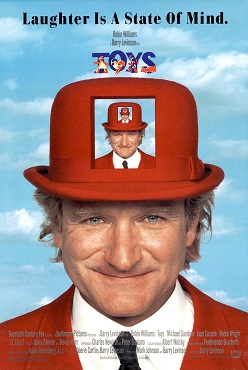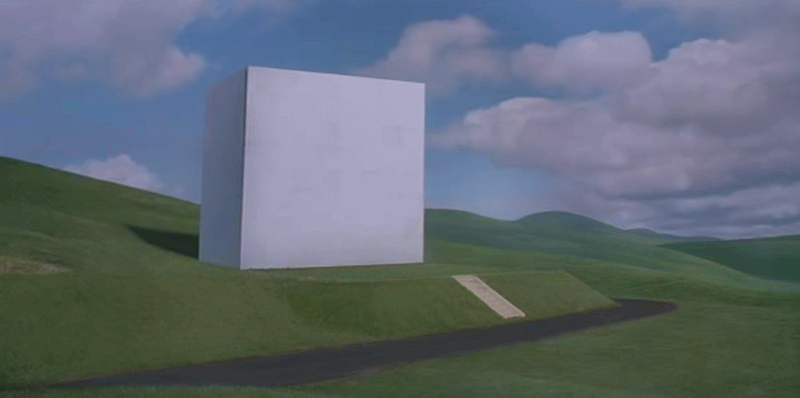Chapter 17: Renaissance Man
Excerpt from Jim Henson: Storyteller, an authorized biography by Jay O’Brian
The brush with death had affected Jim Henson in a profound and seemingly contradictory way. On one hand this
memento mori reinforced his fears that there would never be enough time to accomplish all that he set out to do, a fear that had chewed at him since the untimely passing of his older brother Paul in 1956. Ever since that tragic moment, this fear of never having enough time had lingered, always in the background, always driving him forward. The brush with death had only served to emphasize that feeling. And yet, on the other hand, a sense of calm and acceptance had come over him with the death scare. His time was limited, and he could finally accept that. Rather than push constantly forward, Jim would take his son John’s advice and try to live in the moment. He’d be moving ever forward, getting things done, but also trying not to dwell on what might
not get done, just learning to accept what he
could do.
And increasingly, this meant pursuing passion projects and working for the art, taking Roy Disney’s “putting the dream before the scheme” philosophy and putting it into action. Even before his infection he’d put out four “passion” movies. The first of these was
Musicana, a passion project for Jim and Roy alike and the “third” WED Signature Series animation to be released. Following an over 10 year on-and-off development,
Musicana finally came out in its entirety in May of 1990, just a few months before the release of the “fourth” WED Signature animation,
Maus.
Musicana was an artistic triumph, but a financial dud. The release ultimately netted $55 million against an estimated $37 million total budget, though the long, complicated, and nonconsecutive production made it hard to determine a true cost. Similarly, it’s impossible to determine how much, if any, the release of the
Musicana Shorts ahead of other films added to those film’s revenues, or if they even did. While the project would net only a very modest profit at the box office once advertising and distribution costs were accounted for, the film gained near universal acclaim from critics and awards academies alike, and was nominated for the new Oscar category of Best Animated Feature, losing out to
Maus. VHS and VCD sales would make an additional $58 million the year of release (and more in the following years), making for a moderately profitable title, but like its predecessor
Fantasia, it would be a case of art winning out over finance.
Maus, Bernie Brillstein’s passion project and by extension Jim’s, made a surprising $36 million against a modest $16 million budget, but all of its roughly $14 million in profit went to the National Holocaust Museum fund, which was great by Jim, Bernie, and executive producer Steve Spielberg’s standards, but some of the shareholders were annoyed by this. Those same shareholders, of course, grew irate when
The Song of Susan, made under similar all-for-charity pretenses, broke $150 million at the box office, with all of it going to AIDS research.
Mort, his own personal passion project and the last of the “3 M’s” of 1990, had been a big success when it launched in November of 1990, ultimately breaking $180 million internationally and helping to salvage the reputation of his judgement as a creative head somewhat, which was unfairly taking a beating following the
Susan “debacle”. Still, though, it underperformed compared to expectations.
But these were just a handful of the productions he oversaw. He oversaw (and was invited to tell his own story) in a
Sesame Street special about going to the doctor and dentist. “Even grownups can be afraid to go to the doctor, but it can be really important[1],” Jim famously told a scared Elmo, with Kermit (Jim) backing him up. Under his leadership Walt Disney Studios continued to crank out educational and child friendly fare, Fantasia Films remained the place for unusual, fantasy, and science fiction stories, and Hyperion Pictures remained the go-to label for adult comedies and other adult contemporary pictures. It was getting so busy that he permanently handed off hosting duties of
Disney’s World of Magic to Roy Disney, who’d increasingly been filling in for him anyway. Roy revamped it, returning to the older name of
The Wonderful World of Disney. It was a bittersweet passing of the torch.
But for all the many irons in the fire, the MGM name was the “big deal” at Disney now, and would be the focus of much of the board’s efforts at expanding the company and revitalizing the MGM brand. MGM was where “big” films went: big epics, dramas, Oscar bait, perhaps a musical someday assuming they ever came back into style. And so far, almost all of the productions under the MGM name, be they epic fantasies like
Willow (which could have just as easily gone to Fantasia) or an Oscar-darling drama like
The Song of Susan, had been hits with audiences. And for his next plan Jim wanted to bridge the gap between the epic and the drama: a visually stunning fantasy that also addressed serious issues with major consequences. He found this in the Barry Levinson script
Toys.
Jim was utterly enamored with the concept of a Wonka-esque toy maker facing the dilemma of not just making war toys, but of turning violent video games into real weapons and (in a possible nod to
Ender’s Game) turning unwitting children into mercenary killers. Watching the footage of the “smart bombs” blowing up buildings and vehicles in Iraq, the blood and carnage reduced to a sterile bright white “smear” of heat in the infrared camera, exposed the premise as all too real. Actor Robin Williams was jumping at the chance to play the lead, and in exchange gladly signed on to voice the Genies of the Lamp and Ring in
Aladdin, something that the animators had been pressing for[2]. Though Levinson initially expressed interest in directing as well as producing, Terry Gilliam ultimately signed on to direct after seeing the brilliance of the planned visuals by Italian designer Ferdinando Scarfiotti, which were inspired by the work of surrealist artist Rene Magritte. Danny Elfman composed the score, giving it a wistful, flowing legato rather unlike the bouncy staccato generally associated with his work.
(Image source “oneperfectshot.wordpress.com”)
The biggest obstacle to the film going into production was actually MGM vice-chair and Jim’s old friend Bernie Brillstein, who hated the script. “It’s crap, Jim,” he said. Jim was ok with the script for the most part, and Levinson himself was imminently proud of the work and saw no need for changes, but Jim trusted Bernie on such matters. So, Jim brought in his “heavy caliber weapons” as antagonist General Leland Zevo might have put it: Diana Birkenfield. Diana was blunt to the point of rudeness when she felt it was needed, and not one to be bullied. She’d also been around long enough to know all of the passive aggressive tricks and backstabbing that could be used to undermine her authority. Jim made her the executive producer and empowered her to make this film into a masterpiece. She brought in Lawrence Kasdan to tighten up the meandering script and brought in wunderkind Joss Whedon to punch up the dialog, striking the right balance, the production team felt, between sincere and cynical. Whedon and Williams in particular had a great rapport and soon had a character that was childlike without being childish in the protagonist Leslie Zevo. It was coming together so well that Jim and Imagineer Tony Baxter initiated the design of a
Toys-based immersive walk-through attraction. The film was given a $40 million budget and put into motion.
(Image source “giffer.com”)
The
Toys sets soon took over the new Studio 4 at the expanded Disney lot in Burbank, turning the stage into a massive maze of bizarre and surreal funhouse worlds that Jim found he loved just walking through. Production soon went off the rails, though, between Gilliam’s perfectionism, Williams’s improvising and on-set antics, and technical challenges with the many complex practical sets. Loud battles over often piddling details between Levinson and Birkenfield disrupted production. Principal photography dragged beyond the allotted schedule. The budget swelled to $45 million and then $50 million.
(Image source “imcdb.com”)
Rumors of the troubled production and runaway budget circulated among the gossip magazines. Industry insiders began to wonder out loud if this was going to be Disney’s first big flop in a long time. Some started preemptively calling it “Henson’s Folly”.
But Jim wasn’t listening to the naysayers. He knew that he had a winner, a meaningful production that spoke far louder than any safe bet film ever could. The public knew quality and reacted viscerally to it. He vowed to prove the naysayers wrong.
[1] Hat tip to
@Pesterfield.
[2] In our timeline
Toys was released by 20th Century Fox and Williams only agreed to voice the Genie if Disney didn’t use him as advertising for the animated feature, hoping not to draw attention away from his passion projects of
Ferngully and
Toys. As such, he worked at scale rather than ask for his typical $8 million fee. Disney soon advertised Williams and his likeness anyway, leading to a long and ugly feud. Here, Disney is producing both films, so the conflict is not there as much, and the result is a two-picture deal at a negotiated cost and no hard feelings.



